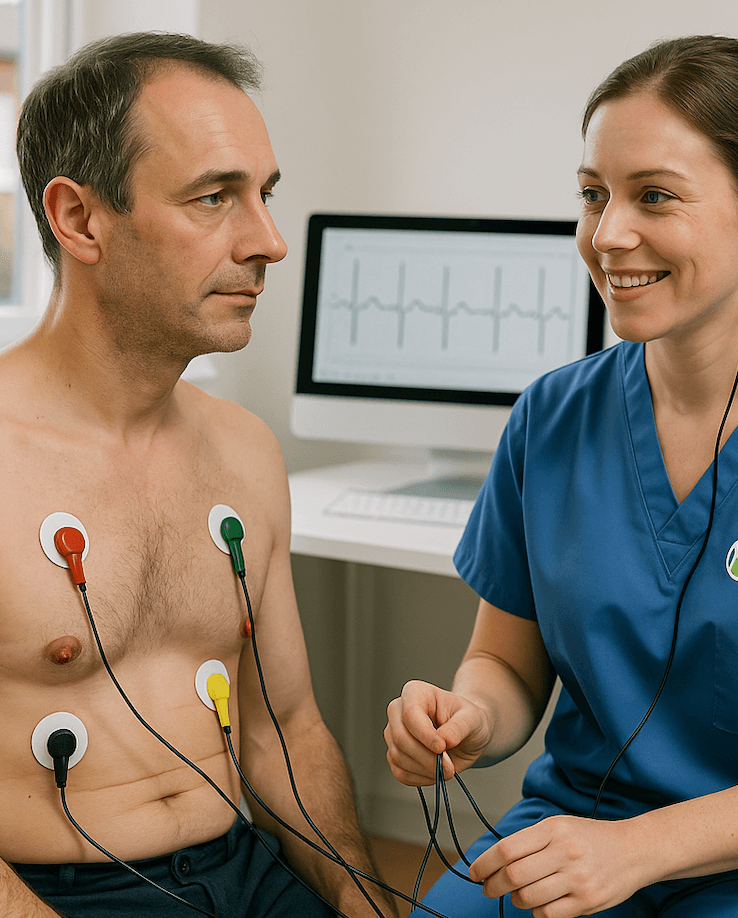
Electrocardiogram (ECG)
Understanding Your Heart Health Assessment
Why is an ECG Used
An ECG is a simple but important test that helps diagnose and monitor conditions affecting the heart. It is often performed alongside other investigations to give a clearer picture of your heart health.
An ECG can help detect:
Arrhythmias
when the heart beats too slowly, too quickly, or irregularly
Coronary heart disease
where the heart’s blood supply is narrowed or blocked
Heart attacks
when blood flow to the heart is suddenly interrupted
Cardiomyopathy
when the heart muscle becomes thickened or enlarged
If you already have a heart condition, or are taking medication that may affect your heart, repeat ECGs over time can be used to safely monitor your progress.
What’s Included in Your Report
Your ECG or Holter monitor analysis will provide a clear, clinician-reviewed report, which may include:
QTc Measurement
assessing the heart’s electrical activity
Heart Rate
your average heart rate over the test period
Heart Rhythm
detailed analysis of rhythm patterns and any irregularities
PR Interval
measures the time for electrical signals to travel from the atria to the ventricles
ECG reports are usually available the same day, while Holter monitor results are typically ready within 1-3 working days.
